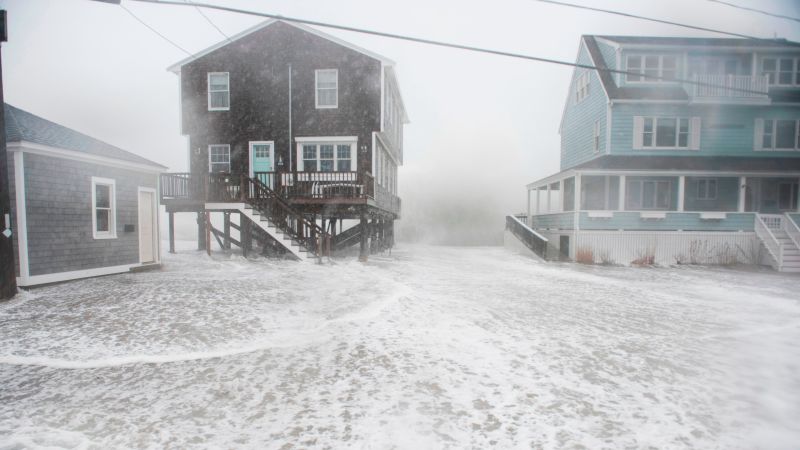Almost half of all deaths from tropical cyclones come from storm surge.
While many people focus on the storms’ wind speed, the bigger danger often comes from water flowing in from the ocean.
And storm surge accounts for nearly half of all hurricane-related fatalities, according to the National Oceanic and Atmospheric Administration.
During Hurricane Katrina in 2005, the storm surge reached as high as 25 to 28 feet above normal tide levels. In Hurricane Ian in 2022, it reached as high as 18 feet in Southwest Florida.
All that water has nowhere to go
Storm surge also can exacerbate flooding. As water piles up along the coast, rivers and streams that typically drain into the ocean can get clogged farther upstream, forcing water levels to rise.
That water just doesn’t leave. Depending on how much water gets pushed ashore and the area’s watershed, it may hang around, causing further damage.
Due to the climate crisis, storm surge has become an even greater threat in recent years.
“Sea levels have risen in most places by about 1 foot over the past century. The higher baseline ocean level allows storm surges to reach even higher, increasing their destructive capabilities,” Miller said.
Rates of sea level rise are increasing as ocean temperatures climb to new highs every year, which will continue to increase the threat to coastal communities, especially during significant storms.
‘Reverse’ storm surge can be dangerous
“Reverse storm surge” also can happen during strong storms. This is when the water actually recedes away from the shoreline back into the ocean as winds push water out of shallow areas.
Just before a hurricane’s landfall, the water recedes along the coast as the storm’s winds blow from the land out toward the ocean, exposing land usually under water.
Ultimately, that water comes back onshore with much greater force, inundating coastal communities.
This can be dangerous because people often will go out to the bare or uncovered land to take photos, grab seashells, etc. But the water can come back in just as quickly as it went out, catching people off guard.






































